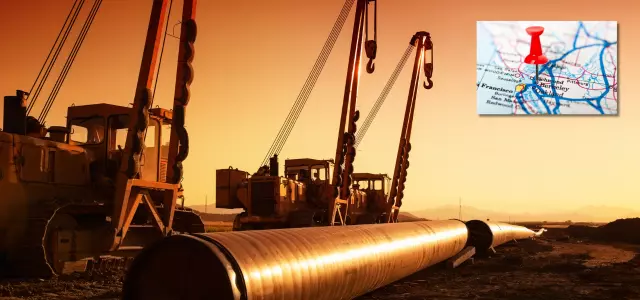
This article originally ran on Forbes.com on April 2, 2024. All rights reserved.
Daniel B. Markind is a Forbes.com energy column contributor. The views expressed in this article are not to be associated with the views of Flaster Greenberg PC.
Almost one year after the Ninth Circuit Court of Appeals had struck down a municipal ban on installing infrastructure for natural gas hookups in new construction enacted in 2019 by the City of Berkeley, California, in a case called California Restaurant Association v. City of Berkeley, No. 21-16278 (April 18, 2023), the City of Berkeley has now thrown in the towel, announcing that it would no longer enforce this ban (Source). Berkeley’s surrender follows that made earlier by the City of Palo Alto, California, and signifies what could become a growing retreat of municipalities from their earlier decisions to follow Berkeley’s initial lead and enact bans of different types of energy hookups intended to end the use of natural gas in residential homes due to climate change (Source).
Since enactment of Berkeley’s 2019 legislation, which was widely praised by environmentalists at the time, yet failed to provide any alternative for how affected homes would be supplied with energy at all, almost 140 other municipalities around the country have enacted similar bans, including New York City, Los Angeles, and San Francisco. It is unclear what these municipalities will now do, especially as municipalities not on the west coast, like New York, are not technically bound by the decisions of the Ninth Circuit. Indeed, the issue may ultimately need to be taken up by the Supreme Court, although it is too soon to predict how the matter may be resolved there.
Nevertheless, Berkeley’s move signals another retreat – perhaps based on scientific and economic reality – from the giddy heyday of bans, quotas, and mandates that so characterized the desire to enforce a transition to cleaner energy at the outset of the green energy movement. While probably well meaning, the edicts and laws enacted in that era have, with hindsight, often run directly into energy reality in their actual implementation.
Indeed, just last week, and for the first time, the United States announced that it would restart a nuclear plant that had previously been mothballed (Source). The plant, known as the Palisades nuclear power plant in Covert Township, Michigan, and which is located about 40 miles west of Kalamazoo, was originally commissioned in 1971 and was shut down in 2022 (Source). The Department of Energy approved a $1.52B loan guaranty to Holtec International, the owner of the plant, to reopen the facility and keep it operational until at least 2051.
For cities and states like New York, where actions and laws designed to reduce or eliminate fossil fuel energy have been the mantra ever since the public began to treat the threat from global warming seriously, the battle is now clearly joined. In 2019, New York City passed Local Law 97, the “Sustainable Buildings” Law, which required that starting this year (2024), most buildings over 25,000 square feet have to meet stringent energy efficiency requirements. And in 2023, New York State also got into the act, becoming the first state to ban natural gas stoves and furnaces in most new buildings altogether (Source).
The reason for New York State’s ban is certainly admirable, as buildings contribute 32% of the State’s emissions according to a study from the New York State Department of Environmental Conservation (Source). However, in implementation, New York State has not taken steps to ensure that it will, in fact, have sufficient energy sources to compensate for natural gas, once it is lost due to the State’s own mandates and prohibitions. Criticisms of how the State has been implementing its natural gas ban aside, one cannot help but to be drawn to the wisdom of the old adage about being careful what one wishes for.
Meanwhile, the first compliance reports under New York City’s Local Law 97 are due on May 1, 2025 reflecting emissions in calendar year 2024. At this point, it is unclear what these reports will show, and certainly what steps New York City will need to take upon non-compliance.
Ironically, the Ninth Circuit ruling comes in the face of increasing political realization that, if natural gas is banned as widely as some municipalities may want, there is a serious question that any location that has enacted such a ban may find itself with sufficient alternative “green” energy to meet its energy needs when natural gas is no longer there. Even more ironically, and in practical effect, the Ninth Circuit’s decision may even have the political advantage of taking heat off of the municipalities that originally enacted these laws should they now decide to move for their retraction. That is, each affected municipality may now be able to blame the courts for their “forced” repealing of these laws, when the reality is they should probably not have enacted laws that were so obviously impractical from the beginning.
Given that observation, it may turn out not to be bad for American municipalities to have to take a “mulligan”, start over, and this time be more realistic as to what truly can and cannot be accomplished in the fight against climate change, especially in consideration of what is also needed to comply with Federal law.

